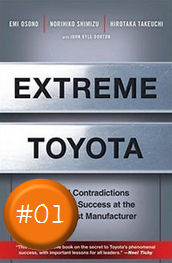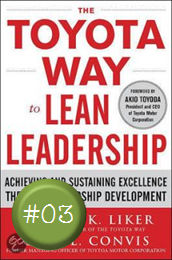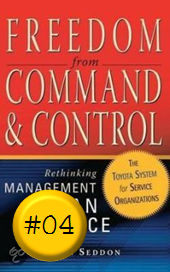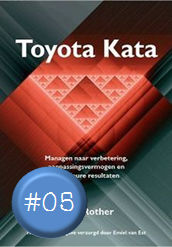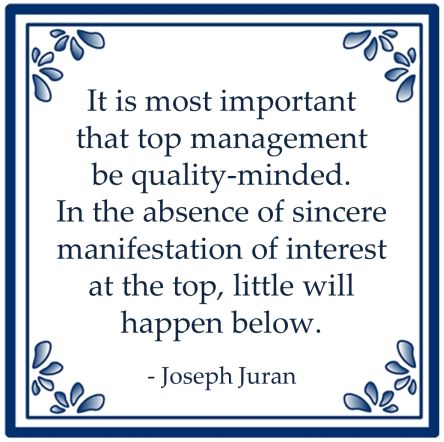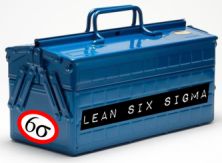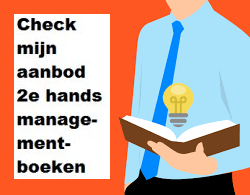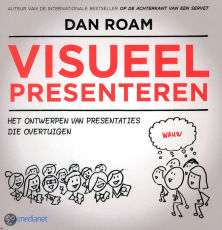Belangrijke onderwijskundige begrippen - Didactisch model (Martin Valcke)
Gepubliceerd in
Bluff Your Way Into

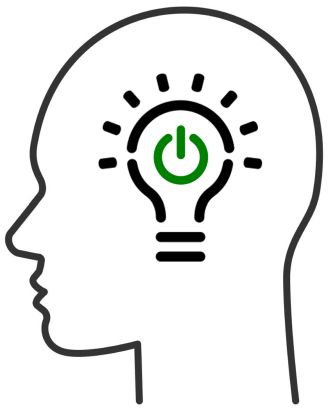
Didactisch model (Martin Valcke)
Definitie
Model waarin Martin Valcke didactisch handelen ontleed in vijf interacterende componenten, waarvan de invulling zal afhangen van de visie op leren en instructie:
1. Leerdoel
2. Leerstof
3. Didactische werkvormen ('Instructieactiviteit')
4. Media
5. Toetsing
Alias: Model van didactisch handelen, Instructieactiviteit
Zie ook: Model van didactisch handelen volgens Martin Valcke
Bron: Onderwijskunde als ontwerpwetenschap - van leren naar instructie, Martin Valcke
Laatst aangepast op maandag, 01 februari 2021 19:18
Belangrijke onderwijskundige begrippen - Leerstof
Gepubliceerd in
Bluff Your Way Into


Leerstof
Definitie
Datgene wat je moet leren; de verzameling van alle leermaterialen die een lerende dient te bestuderen.
Alias: Lesstof, Lesmateriaal
Zie ook: Model van didactisch handelen volgens Martin Valcke

Leerstof
De stof waarvan men leert.
Bron: Onderwijskunde als ontwerpwetenschap - van leren naar instructie, Martin Valcke

Leerstof of lesstof is in het onderwijs een afgebakende hoeveelheid kennis die men moet opdoen, oftewel datgene dat binnen onderwijs geleerd wordt of dient te worden.
De onderwijsmaterialen (waaronder lesmaterialen, opgaven, instructies, studieteksten en onderwijsfilms) die voor de leerder dienen om zich de leerstof eigen te maken, zijn ondergeschikt aan de leerstof, ze zijn daarvan de drager.
Bron: https://nl.wikipedia.org/wiki/Leerstof

Leerstof
Het inhoudsaspect van de leerdoelen
Bron: Lesgeven en zelfstandig leren, Tjipke van der Veen & Titus Geerligs

Leerstof
Leerstof is de verzameling van alle materialen die een lerende dient te bestuderen.
Leerstof geeft dus in het onderwijs aan wat er gestudeerd moet worden. Als de gebruikte onderwijsmethode en de leerdoelen ook worden beschreven dan geeft de leerstof eveneens aan hoe men dien te leren en waar dat naar moet leiden. Leerstof omvat leermaterialen als lesmaterialen, opgaven, instructies, studieteksten en onderwijsfilms. Onderwijs dat uitgaat van de leerstof en niet van de lerende wordt leerstof-gecentreerd onderwijs genoemd.
Bron: https://nl.wikibooks.org/wiki/Onderwijsprofessional/Begrip/Leerstof
Laatst aangepast op maandag, 04 mei 2020 19:37
Belangrijke onderwijskundige begrippen - Media
Gepubliceerd in
Bluff Your Way Into


Media
Definitie
...
Alias:
Zie ook: Model van didactisch handelen volgens Martin Valcke

Media
'Media' verwijst naar de 'gematerialiseerde' vorm van leerstof en/of tools/middelen die men gebruikt bij een didactische werkvorm: boeken, projectoren, computer, bord, fiches, zelfstudiepakket, website, e-learningomgeving, etc.).
Bron: Onderwijskunde als ontwerpwetenschap - van leren naar instructie, Martin Valcke
Laatst aangepast op maandag, 04 mei 2020 11:27
Belangrijke onderwijskundige begrippen - Toetsvorm
Gepubliceerd in
Bluff Your Way Into


Toetsvorm
Definitie
...
Alias:
Zie ook: Model van didactisch handelen volgens Martin Valcke

Toetsing
Manier (inhoud, materiaal, activiteiten en organisatie) waarop men het bereiken van een of meer vooropgestelde leerdoelen controleert.
Toetsvormen
- Voorkennistest
- Voortgangstest
- Eindtest
Bron: Onderwijskunde als ontwerpwetenschap - van leren naar instructie, Martin Valcke
Laatst aangepast op maandag, 04 mei 2020 11:28
Belangrijke onderwijskundige begrippen - Regulatief leren
Gepubliceerd in
Bluff Your Way Into


Regulatief leren
Definitie
...

Regulatieve leerartiviteiten
Oriënteren: voorbereiden van een leerproces.
Plannen: ontwerpen van een leerproces en vaststellen van een handelingsplan op basis van de informatie die de oriëntering oplevert.
Proces bewaken: tijdens het werken aan de taak in de gaten houden of het leerproces volgens plan verloopt, zoals de leerling zich dat had voorgesteld.
Toetsen: controleren of men de leerstof voldoende begrijpt kan onthouden, kan toepassen, of men voldoende inzicht en overzicht heeft; controleren of de gerealiseerde leerresultaten overeenkomen met de geplande leerdoelen.
Bijsturen: veranderingen aanbrengen in de oorspronkelijke planning op basis van de resultaten van bewakende, toetsende en diagnostische activiteiten; beslissen tot alternatieve leeractiviteiten, leerdoelen en/of leerinhouden gedurende het leren.
Evalueren: beoordelen in hoeverre de leerresultaten die zijn bereikt overeenstemmen met de geplande leerdoelen en in hoeverre het leerproces is verlopen zoals dat aanvankelijk was voorgesteld.
Reflecteren: overdenken wat er tijdens het leren allemaal is gebeurd en nadenken over leren, leeractiviteiten, leerervaringen, en de taakverdeling bij het leren tussen leerling, docent en medeleerlingen in het algemeen.
Bron: Onderwijskunde - een kennisbasis voor professionals, Nico Verloop & Joost Lowyck (red.)
Laatst aangepast op maandag, 20 juli 2020 09:15
Belangrijke onderwijskundige begrippen - Learning experience platform
Gepubliceerd in
Bluff Your Way Into


Learning Experience Platform (LXP)
Definitie
.....
Alias:
Leerervaring
Zie ook:

De rol van het Learning Experience Platform (LXP)
De Learning Experience Platform is het platform waar alle Learning Experiences, gegroepeerd in Focus Areas, te bereiken zijn voor de lerende. Met hulp van dit Learning Experience Platform kunnen L&D’ers beter zien wat in hun organisatie wel en niet werkt. Dankzij Learning Analytics , big data en Learning record stores, kunnen L&D’ers sneller ingrijpen in Learning Journeys en Experiences, kunnen ze ze wijzigen en/of aanvullen om het leren voor alle lerenden verder te optimaliseren.
Bron: Learning & Development: een nieuwe definitie?

Wat is een LXP?
Een Learning Experience platform (LXP) is een gepersonaliseerde, social, online leerervaring voor medewerkers. Het is een open ecosysteem waarin de student centraal staat.
Waar in een traditionele LMS vooral de beheerder (en dus vaak de organisatie) centraal staat, is dit bij een LXP de student (of medewerker). Medewerkers hebben dus de mogelijkheid om niet alleen kennis op te doen die een organisatie aanbiedt, maar kan ook actief op zoek naar externe kennis.
Dit betekent niet dat je niks meer aan een traditioneel LMS hebt, maar dat deze niet meer centraal staat. Het LMS is bij een LXP een onderdeel van het grotere geheel geworden.
Specifieke kenmerken van een LXP
Hoewel er nog niet extreem veel LXP’s in de markt zijn, hebben de meeste LXP’s veel overeenkomsten. Specifieke kenmerken zijn bijvoorbeeld:
- Gamification
- Content Market Place
- Kennisgebieden / channels
- Curations
- Meer focus op de student
- Focus op skills ipv op rollen
Bron: https://mycademy.com/site/learning-experience-platform-lxp/

What is a Learning Experience Platform?
The Learning Experience Platform (LXP) is a consumer-grade learning software designed to create more personalized learning experiences and help users discover new learning opportunities. By combining learning contents from different sources, recommending and delivering them with the support of Artificial Intelligence, across the digital touch points, e.g. desktop application, mobile learning app and others.
Bron: https://www.valamis.com/hub/learning-experience-platform#what-is-lxp

Learning experience platform definition
A learning experience platform (or LXP) is a user-friendly online platform that organizations use to facilitate on-the-job learning. Unlike more traditional learning management systems (or LMSes), LXPs focus not only on managing corporate learning programs from the perspective of the business but also on improving the learners’ experience.
While there’s a lot of feature variation within the category, LXPs can be roughly divided into three groups: 1) those that concentrate on personalized content delivery with AI-based recommendation engines, 2) those that focus on facilitating social learning and collaboration, and 3) hybrid platforms that combine content delivery capabilities with social features.
Most learning experience platforms belong in the first category. They’re much like “Netflix for learning” in that they offer personalized material recommendations based on the users’ role, interests, past behavior, and other relevant variables.
Bron: https://www.howspace.com/resources/what-is-a-learning-experience-platform

What is a learning experience platform?
An LXP is a learning experience platform designed to provide learning opportunities that go beyond the traditional learning management system (LMS). It offers learning that is personalised, social and in-workflow. An LXP should have a core set of capabilities and integrated technologies that gives the learner an exceptional user experience UX). Key features include adaptive learning paths, easy access to content, and recommendations driven by artificial intelligence (AI).
It should also accommodate any form of content, including articles, podcasts, blogs, microlearning, videos, and courses. The platform should provide a social space where learners can connect, collaborate, share content and network with each other and experts. An LXP can be used in conjunction with an existing LMS that’s used to manage more formal learning content.
In short, an LXP should break the boundaries that define the LMS. It should provide learners with an experience that looks and feels just like the modern web.
Bron: https://www.logicearth.com/learning-experience-platform-lxp/

Barrier-free access to learning – the LXP
The LXP is what the learning management system (LMS) should have been. According to the industry analyst Josh Bersin, the LXP represents the new world of corporate learning. Think about how Netflix disrupted movie distribution and impacted viewing habits, and you’ll understand the potential. Combining a learning platform with easy to consume, engaging and high impact digital content, the LXP has no barriers to access.
Bron: https://blog.logicearth.com/the-surprising-leap-from-lms-to-learning-experience-platform
Laatst aangepast op zaterdag, 17 oktober 2020 07:56
Belangrijke onderwijskundige begrippen - Learning experience
Gepubliceerd in
Bluff Your Way Into


Learning Experience (LX)
Definitie
"A learning experience is any interaction where a person learns something."
Alias:
Leerervaring
Zie ook:

Wat er nodig is = Learning Experiences
Iedereen leert anders. Het liefst leer je op een moment dat het jou uitkomt, op een manier die bij jou past. Het is ook nog eens zo dat je makkelijker (en beter) leert als je ‘ervaart’. Daarom zijn Learning Experiences nodig in organisaties. Leerervaringen die zoveel mogelijk geïntegreerd zijn in de workflow, op de werkvloer. Veel verschillende leerervaringen bovendien, zodat iedereen kan kiezen wat hij wil. Die werkvloer, dat is precies de plek waar de L&D’ers ook moeten zijn. In plaats van vaste trainingen en cursussen, maken ze nu een steeds veranderend aanbod voor lerenden en begeleiden ze lerenden bij hun optimale learning journey. Het liefst op een Learning Experience Platform (LXP).
In het tijdperk van gepersonaliseerd leren zijn L&D'ers minder bezig met een aanbod en aankruisvakjes. In plaats daarvan stellen ze lerenden in staat om hun volle potentieel te ontwikkelen
Bron: Learning & Development: een nieuwe definitie?

Learning Experience
Learning experience refers to any interaction, course, program, or other experience in which learning takes place, whether it occurs in traditional academic settings (schools, classrooms) or nontraditional settings (outside-of-school locations, outdoor environments), or whether it includes traditional educational interactions (students learning from teachers and professors) or nontraditional interactions (students learning through games and interactive software applications).
Because students may learn in a wide variety of settings and ways, the term is often used as a more accurate, preferred, or inclusive alternative to terms such as course, for example, that have more limited or conventional connotations. Learning experience may also be used to underscore or reinforce the goal of an educational interaction—learning—rather than its location (school, classroom) or format (course, program), for example.
The growing use of the term learning experience by educators and others reflects larger pedagogical and technological shifts that have occurred in the design and delivery of education to students, and it most likely represents an attempt to update conceptions of how, when, and where learning does and can take place.
Bron: https://www.edglossary.org/learning-experience/

What is learning experience design?
Learning experience design (LX design) is the process of creating learning experiences that enable the learner to achieve the desired learning outcome in a human centered and goal oriented way.
https://lxd.org/fundamentals-of-learning-experience-design/what-is-learning-experience-design/

Learning experience
Learning experience refers to any interaction, course, program, or other experience in which learning takes place, whether it occurs in traditional academic settings (schools, classrooms) or nontraditional settings (outside-of-school locations, outdoor environments), or whether it includes traditional educational interactions (students learning from teachers and professors) or nontraditional interactions (students learning through games and interactive software applications).
Because students may learn in a wide variety of settings and ways, the term is often used as a more accurate, preferred, or inclusive alternative to terms such as course, for example, that have more limited or conventional connotations. Learning experience may also be used to underscore or reinforce the goal of an educational interaction—learning—rather than its location (school, classroom) or format (course, program), for example.
Bron: https://www.edglossary.org/learning-experience/

A wide variety of experiences across different contexts and settings which transform the perceptions of the learner, facilitate conceptual understanding, yield emotional qualities, and nurture the acquisition of knowledge, skills and attitudes. In educational settings learning experiences are ideally challenging, interesting, rich, engaging, meaningful, and appropriate to learner needs. Previous learning experiences are considered to be key factors predicting further learning.
Bron: http://www.ibe.unesco.org/fileadmin/user_upload/Publications/IBE_GlossaryCurriculumTerminology2013_eng.pdf
Laatst aangepast op zaterdag, 20 februari 2021 19:35
Belangrijke onderwijskundige begrippen - Learning Management System (LMS)
Gepubliceerd in
Bluff Your Way Into


Learning Management System (LMS)
Definitie
Systeem dat communicatie en interactie mogelijk maakt tussen leeraren, leerlingen en leerobjecten in een virtuele omgeving.
Alias:
....
Zie ook:

The Failure of the LMS
Learning Management Systems zijn geschikt als trainingsmiddel voor grote groepen medewerkers, al zijn ze niet erg effectief. Het is gebaseerd op een gebrekkig model, dat binnen de kortst mogelijke tijd een maximale hoeveelheid informatie verstrekt. Het is voor medewerkers vrijwel ondoenlijk om al deze stof te leren en te onthouden.Het is gebleken dat de traditionele eenmalige trainingssessie – klassikaal of via e-learning – geen effectief middel is om kennis permanent op te nemen. Eenmalige trainingen zijn uiterst vatbaar voor de ‘vergeetcurve3’, een wetenschappelijk bewezen cognitief concept dat inhoudt dat tot 90% van de opgedane kennis snel wordt vergeten, tenzij de stof wordt herhaald.
Bron: Microlearning: Kleine Bites, Grote Impact - De acht succesfactoren van een microlearning aanpak, VDS/Axonify

Learning Management Systems en Learning Content Management Systems
Een Learning Management System (LMS) is een softwaretool, die normaal gezien web-gebaseerd is en leermomenten plant en opzet. Het 'beheert' ook leerlingen door hun vorderingen en prestaties te volgen en vergemakkelijkt de intereactie tussen leerkrachten en leerlingen en tussen leerlingen onderling.
Een Learning Content Management System (LCMS) concentreert zich daarentegen op de ontwikkeling, het beheer en het publiceren van materiaal dat normaal door een LMS wordt aangeleverd. Het voorziet ook ttols voor auteurs en ontwerpers om effiënt e-learning materiaal te maken.
Een LMS wordt vaak verward met een LCMS. In feite zijn ze complementair. Ze leveren allebei tools om e-learning materiaal te ontwikkelen en ze beheren allebei online leerprocessen. Het is dan ook normaal dat gezocht wordt naar softwareoplossingen die kenmerken van beide bezitten.
Elementen van een LMS en van een LCMS
Een LMS bevat meestal de volgende elementen:
- Tools om gebruikers, gebruikersgroepen, cursussen en leerkrachten te beheren en te volgen
- Een tijdschema en een agenda
- Tools voor het verzenden van berichten naar personeel of leerlingen
- Tools waarmeee personeel en leerlingen berichten naar elkaar kunnen sturen
- Tools voor groepscommunicatie, zoals fora of chat
- Tools voor het beheren van evaluatie of het testen van progressie
- Tools om rapporten af te leveren over al het bovenstaande
Een LCMS bevat meestal de volgende elementen:
- Een gecentraliseerde 'bewaarplaats', waar herbruikbare e-learning materiaal wordt opgeslagen
- De mogelijkheid om externe e-learning materialen te importeren
- Een tool om materiaal terug te vinden
- Tools om materiaal te ontwerpen en te bewerken
- Tools om evaluatiemateriaal te ontwikkelen
- Tools voor 'versioning' (bijhouden van veranderingen) en het tonen van een overzicht van veranderingen
- Ondersteuning voor het publiceren en het wijzigen van webinhoud
- Een dynamische gebruikersinterface
- Een systeem dat metadata en taxonomieën ondersteunt
Zoals je ziet, hebben een LMS en een LCMS elkaar nodig.
Bron: TACCLE Teachers' Aids on Creating Content for Learning Environments - Het E-learning handboek voor leerkrachten

Learning management system
Het LMS-programma vormt een platform dat ondersteuning biedt bij het selecteren, volgen en geven van opleidingen. Een LMS kan gebruikt worden binnen een bedrijf om bij te houden welke werknemers welke scholing hebben gevolgd, volgen, of zullen volgen. Resultaten van de scholing kunnen worden gekoppeld aan bijvoorbeeld functiebeoordelingen. Werknemers kunnen via een LMS soms ook opleidingen kiezen en contracteren. Hierbij niet te verwarren met een elektronische leeromgeving (ook wel Course Management System genoemd). Daar waar een LMS de organisatie van het totale opleidingsaanbod ondersteunt, ondersteunen ELO's de organisatie van het leren binnen een opleiding.
Bron: https://nl.wikipedia.org/wiki/Learning_management_system

A learning management system (LMS) is a software application or web-based technology used to plan, implement and assess a specific learning process. It is used for eLearning practices and, in its most common form, consists of two elements: a server that performs the base functionality and a user interface that is operated by instructors, students and administrators.
Typically, a learning management system provides an instructor with a way to create and deliver content, monitor student participation and assess student performance. A learning management system may also provide students with the ability to use interactive features such as threaded discussions, video conferencing and discussion forums.
Bron: https://searchcio.techtarget.com/definition/learning-management-system

What is a Learning Management System?
A learning management system, (LMS) is a software that is designed specifically to create, distribute, and manage the delivery of educational content. The LMS can be hosted as a stand-alone product on the company server, or it can be a cloud-based platform that is hosted by the software firm.
Think of a learning management system as technology that can improve learning, make it faster, productive, cost-effective, and what is more important - trackable.
The most basic LMS contains a core functional platform that enables administrators to upload learning content, deliver lessons to students, serving notifications, and share data with authorized users.
An LMS most often operates inside of a web-browser, behind a secure sign-on process. This gives all students and instructors easy access to courses on-the-go, while administrators and leaders can monitor student progress and make improvements.
Bron: https://www.valamis.com/hub/what-is-an-lms

What’s an LMS?
An LMS is a platform for digital learning. Its key features can be found in the abbreviation.
L — Learning. With an LMS, you can create a single source of online courses and training materials. This will become a unique source of knowledge in your area, so that you can keep and increase the in-house expertise of your company.
M — Management. You can manage courses and learners, and even improve your own efficiency.
Unlike file sharing services, an LMS is not just a heap of files; on the contrary, it’s a well-organized system where you manage the training process. To start training, simply add employees and assign courses.
Have you recently hired some new employees? Send them invitations to the onboarding training course. Experiencing low sales? Ask your salespeople to practice with virtual clients.
Thanks to features like a calendar, you’ll be able to assign and manage not only online training, but also in-class sessions. In this way, an LMS can be a sort of a to-do app designed specially for eLearners.
S — System. Computer system, to be exact. An LMS automates the most boring and tedious work such as grading, processing statistics, and preparing reports. Plus, you can train your employees without leaving the office, managing all the processes right from your work computer.
In other words, an LMS is like your own online university. The system allows you to store and create eLearning courses, provides learners access to the content, and helps you evaluate the results.
Bron: https://www.ispringsolutions.com/blog/what-is-lms

What is an LMS?
A learning management system (LMS) is the software used by schools and businesses to manage the delivery of educational or training content.
Bron: https://www.d2l.com/learning-management-system-lms/

Van LMS tot LCMS
De meeste instellingen voor hoger onderwijs beschikken al enkele jaren over een elek-tronische leeromgeving (ELO) of Learning Management System (LMS). Met een LMS geeft de docent digitale ondersteuning aan het leren van de student: veel aandacht gaat naar de onlinepresentatie van leerinhouden en naar de communicatiemiddelen. Hoe al dat leermateriaal moet worden beheerd en ontwikkeld, is echter weinig of niet uitgebouwd. Zo krijgt een student ... een mooi overzicht van alle cursussen waarop hij is ingeschreven en de berichten die voor hem van toepassing zijn.
Als docent is het echter een hele klus om alle lesmateriaal efficiënt te beheren, zeker als hij verschillende cursussen on line heeft staan.
Een Learning Content Management System (LCMS) komt hier aan tegemoet. Een LCMS is de combinatie van een LMS met een Content Management System (CMS).
Met een CMS wordt inhoud beheerd, met een LMS wordt inhoud gepresenteerd. Een LCMS helpt zowel student als docent in het opzetten van een volwaardige elektronische leeromgeving. Wanneer een docent zijn digitale cursus opbouwt, verzamelt hij allerlei digitaal didactisch materiaal in het CMS. Het materiaal wordt dan op een pedagogisch-didactisch verantwoorde manier verzameld in wat we een 'leerobject' noemen.
Bron: Digitaal leren - ICT-toepassingen in het Hoger Onderwijs, Ivan d' Haese

Learning Management System
Learning Management System is a broad term that is used for a wide range of systems that organize and provide access to online learning services for students, instnictors. and administrators. These services usually include access control, provision of learning content, communication tools, and organizations of user groups. Learning system(LS) is another tenn used synonymously with LMS.
Kaplan-Leiserson has developed an online e-learning glossary and provides the following definition of LMS: Learning management system (LMS): Software that automates the administration of training eveMs. The LMS registers users, tracks courses in a catalog, and records data from learners; it also provides reports to management. An LMS is typically designed to handle courses by multiple publishers and providers. It usually doesn't include its own authoring capabilities; instead, it focuses on managing courses created by a variety of other sources.
Bron: Innovative Techniques in Instruction Technology, Magued Iskander (red.)

Kaplan-Leiserson provides the following definition of LMS: LMS (learning management system): Software that automates the admin-istration of training events. The LMS registers users, tracks courses in a cata-log, and records data from learners; it also provides reports to management. An LMS is typically designed to handle courses by multiple publishers and providers. It usually doesn't include its own authoring capabilities; instead, A focuses on managing courses created by a variety of other sources.
Hall (2001) presents this alternative definition: A Learning Management System (LMS) automates the administration of training events. All Learning Management Systems manage the log-in of registers users, manage course catalogs, record data from learners, and provide reports to management. There used to be a distinction between Learning Management Systems and more powerful Integrated Learning Management Systems. That distinction has now disappeared.
The term Learning Management System is now used to describe a wide range of appli-cations that track student training and may or may not include functions such as:
• Authoring
• Classroom management
• Competency management
• Knowledge management
• Certification or compliance training
• Personalization
• Mentoring
• Chat
• Discussion boards.
Virtual Learning Environment (VLE)
Virtual learning environment is a term that to some extent is used instead of LMS.
The two terms have more or less the same meaning, but one may argue that VLE focus less on the features related to the management of learning.
Bandon Hall (2001) defines learning environment this way: A Learning Environment is software designed as an all-in-one solution that can facilitate online learning for an organization. It includes the functions of a learning management system for those courses within the learning environment. but it may not be able to track online courses that were not created within this particular learning environment. A learning environment is characterized by an interface that allows students to register and take courses, staying within that environment for the duration of the course. The program will usually include some self-instructional portions, along with an academic model of a multi-week course. This model is often facilitated by an instructor, where a group can proceed on a week-to-week basis with seminar assignments. Most learning environments also include an authoring capability for creation of additional courses for the instructor.
Bron: Student Entrepreneurship in the Social Knowledge Economy, Door Manlio Del Giudice, Maria Rosaria Della Peruta, Elias G. Carayannis

An LMS, as defined by Oakes (2002) is “learner and organization focused: It’s concerned with the logistics of managing learners, learning activities and the competency mapping of an organization.” LMS covers a wide range of activities and “in an information age model of education an LMS will assess learner’s current knowledge and skill level, work with teachers and learners to identify appropriate learning goals, identify and sequence instruction appropriate for the individual learner, assess learner performance products, store evidence of attainments, support collaboration and generate reports to provide information to maximize the effectiveness of the entire learning organization” (Watson & Watson, 2007).
An LMS offers a wide range of functionalities and tools to support teaching and learning. It not only delivers contents but also looks after administration, registration, tracking, skills gap analysis and reporting (Gilhooly, 2001). Still there are many universities who are in the process of selecting an LMS. According to McConachie, Danaher, Luck, and Jones (2005) selection of an LMS is the most important factor to decide any university’s online success.
Bron: https://www.researchgate.net/publication/285762359_Learning_Management_Systems_LMS_Inside_Matters

According to Araújo Júnior and Marquesi (2009) a Learning Management
System, widely spread as LMS and, hence the use of this acronym in this study may be defined, in the user perspective, as a virtual environment that aims to simulate face-to-face learning environments with the use of Information Technology.
In an LMS, the interaction happens through devices that enable communication either synchronously or asynchronously, allowing the creation of different strategies to encourage a dialogue and active participation of students.
According to Lonn and Teasley (2009) Learning Management Systems are web-based systems that enable teachers and students to share materials, to submit and return assignments and to communicate online. Meanwhile Almrashdeh et al. (2011) point out that an LMS is software used to plan, implement and
evaluate a specific learning process.
In LMS, mediation involves both the acquisition of competences and
communication skills of all teachers and students, and a greater concern to create interaction moments and practical application possibilities of collaborative work, with that learning process happening in a participatory manner. For that, the teacher relies on communication devices, such as chat rooms, forums, blogs, video blogs (Souza, 2005; Sartori & Garcia, 2009; Rosini, 2013). To these authors, it is necessary to consider that an LMS must seek to get the best advances in technology available today, for reasons of
efficiency and for enabling the maximum degree of interactivity and communication among users. Learning and collaborative work have become fundamental and technological advances should lead to the achievement of high interaction levels.
The first LMS appeared in the nineties, along with the first web browsers.
According to Silva (2013), Learning Management Systems are often criticized, due to the belief that these technologies simply virtualize non-virtual classrooms. However, according to the author, they are not the main problem, but the way they are designed, structured and crafted. Furthermore, the use of an LMS requires careful studies particularly in relation to educational and financial aspects.
Bron: https://www.researchgate.net/publication/309542516_Learning_Management_Systems_LMS_and_e-learning_management_an_integrative_review_and_research_agenda
Laatst aangepast op zaterdag, 30 januari 2021 11:12
Risicovolle requirements (cartoon)
Gepubliceerd in
Requirements
Laatst aangepast op vrijdag, 03 januari 2020 12:35
Problemen volgens W. Edwards Deming
Gepubliceerd in
Citaten: systeemdenken

If everyone did their best, 95% of problems would remain.
W. Edwards Deming
Laatst aangepast op vrijdag, 10 januari 2020 09:08
|









